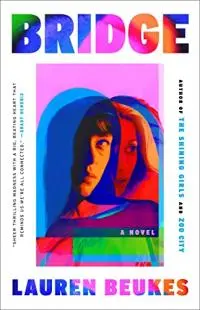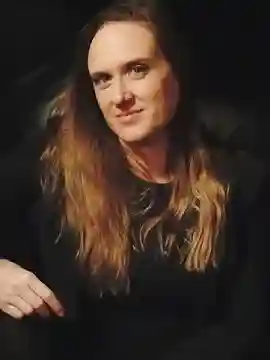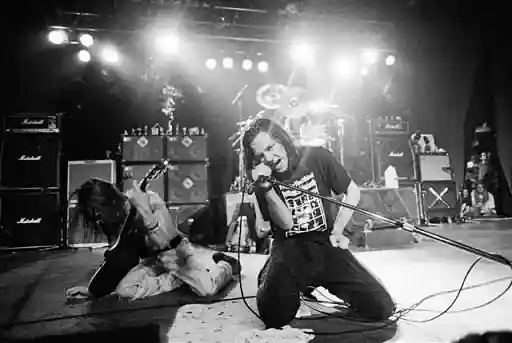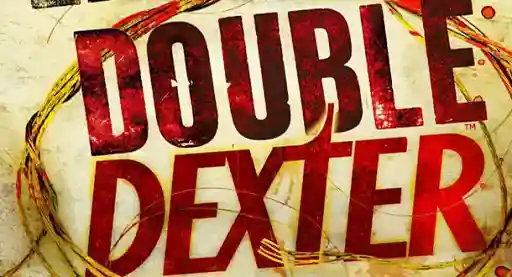Bridget Kittinger has spent her life trying to reconcile the memories of her childhood with the reality of the world. But when her mother, a troubled neuroscientist, dies, Bridget is left to pick up the shattered remnants of her life. Except, instead of finding closure, Bridget is confronted with even more questions when she finds the “dreamworm” in her mother’s freezer.
These almost mythical strands allow anyone to visit their otherselves in alternate dimensions, memories Bridget had finally convinced herself she made up. Even worse, Bridget can’t quite shake the feeling that the woman who died in that hospital bed wasn’t actually her mother. Desperate, grieving, and searching for answers, Bridget sets out to find her mother, in whatever universe she’s stuck in. But the dreamworm is more than it appears. And there’s a cost to visiting other worlds. One Bridget may not be prepared to pay.
A tightly plotted narrative that propels the reader forward, Bridge opens with a kidnapping and sets the foundation of character and plot. There’s a desperate energy, misread and toned down through a child’s eyes, but it's there all the same. And then we fast forward to the future. Where Jo is dead and Bridget is filled with her own desperation: to close the door and move on with her life.
Except, she can’t. Not when she sees the dreamworm frozen in leftover pasta. Suddenly, everything she thought was a lie, her false memories, are suddenly real. And a new desperation takes hold. One that she refuses to let go.
It’s a premise many will immediately relate to. The unfinished business of parents and children, the need for answers we so rarely get. Throughout the story, it’s easy to be both sympathetic and frustrated with Bridget’s relentless insistence that she continue forward. Part of that is because we know more than she does. But it’s also because anyone who has been through a similar struggle knows that rarely is the answer satisfying or what you wanted it to be. More often than not, it leads to disappointment. Sometimes it leads to outright horror. And Beukes acknowledges our feelings through Dom, Bridget’s non-binary best friend.
This is where the novel shines. While the plot pushes the momentum, it’s the richness and depth of the characters that keeps you turning the pages. This is a story about multiple universes, but the way it’s set up, this is not about discovering what might be, and instead focuses on what is. Dom, who fought so hard for who they are, has their own thoughts and opinions on the dreamworm. And Bridget isn’t worried about her otherselves as much as she’s focused on the search for her mother.
Of course, the question of ‘what if’ does come up, but this isn’t a story about trying to leave this life and find a new one. At least, not entirely. Bridget’s relationship with Dom cements her to the world she lives in and the life she loves. She isn’t looking for a way out. But she also can’t let her mom go.
And then there are other perspectives to contend with, along with pieces of Jo’s journals. From these chapters we get a glimpse into who these characters are and what they struggle with, each brought to life in rich detail. Jo’s obsession with the dreamworm, Dom’s determination to uncover what the dreamworm actually is, Bridget trying to make sense of it all. Each perspective weaves in and around the others, in a beautiful metaphor for how the dreamworm lets you slip into other lives, other selves, all across the multiverse.
This layering starts all the way with the title, Bridge, short for Bridget but also as an allusion to one consciousness travelling to the others. And even how the characters' stories intersect with each other. Jo and her quest for more, Dom and their connection to Bridget. This is a novel about relationships. The lengths we go to for the people we love, the lies we might tell ourselves to protect us from hurt. And while the focus is largely on Bridget and her relationship with her mother, it’s Dom that shines through the most.
Their practical attitude and no-nonsense approach make them instantly likeable, but where they really snagged my heart was their devotion to their friendship with Bridget. They ground Bridget, giving her something to hold onto, even when everything starts to fall apart. But Dom isn't a pushover. They love Bridget and support her, but they aren’t afraid to tell her when they disagree with her or think she’s making a mistake. For all the dysfunction between Bridget and Jo, Jo and the world, Dom stands out as someone reliable and with a firm understanding of healthy boundaries. That doesn’t mean they don’t make mistakes. Or that when they do, they aren’t major ones. But the lengths they go to for Bridget show the depth of their friendship. They aren’t a cardboard character. They’re vivid, complex, and fallible. And anyone would be lucky to have a friend like them—in any world.
Even with the inclusion of a stable best friend, Bridge holds a tangled mystery, and each storyline offers a piece of the puzzle. As the pieces begin to fall into place for the reader, important elements remain out of reach for the characters, with each decision leading to unforeseen consequences. Every turned page ratchets up the tension in a frenetic pace to the end. There isn’t just one mystery, there are layers. And the most important one is the most elusive, guaranteed to keep readers guessing all the way to the end.
That’s not to say it’s a frustrating read or that the answer comes out of nowhere. It’s more a testament to how deeply Beukes draws us in and tangles us inside the lives of these characters. Bridget is searching for her mother, but she’s also searching to know her mother. As most of us grow to realize eventually, the memories we have, the people we thought were our parents are so often only a shadow of who they actually are. In this case, Jo actually did keep secrets. But as we all do, Bridget saw the pieces of her mother that she wanted to, only confronting the truth when it is too late.
 One aspect of this story that stood out to me was the idea of consent. Rarely, at least in novels I’ve read, does this come up. Usually you are you, travelling to places where you can’t see or interact with your otherself. But here, you switch, trading places and physical bodies. It’s an invasion, and one that shouldn’t be taken lightly. Dom is once again the voice of reason, raising the question and then insisting on taking consent into account with each transfer taken. These are small details compared to the overarching story, but they make a big impact. Particularly in how they highlight the way each character does or doesn’t consider it, and the unforeseen consequences that spiral from these choices.
One aspect of this story that stood out to me was the idea of consent. Rarely, at least in novels I’ve read, does this come up. Usually you are you, travelling to places where you can’t see or interact with your otherself. But here, you switch, trading places and physical bodies. It’s an invasion, and one that shouldn’t be taken lightly. Dom is once again the voice of reason, raising the question and then insisting on taking consent into account with each transfer taken. These are small details compared to the overarching story, but they make a big impact. Particularly in how they highlight the way each character does or doesn’t consider it, and the unforeseen consequences that spiral from these choices.
As with many of Beukes’ novels, Bridge spans genres. It’s a mystery with a thriller pace featuring speculative elements while displaying absolutely horrific moments of exquisite body horror. The chapters that focus on the switch are chaotic and surreal. But it’s the people who fight to get the dreamworm and the ones who try to stop it that explore the true horror of what humans are capable of.
This could be a story of addiction, showing the phantasmagoric high in contrast to the bone-deep ache of withdrawal. Part of this comes from the desperate energy the novel starts with, but it carries through each character as well. The dreamworm creates obsessions and leaves destruction in its wake. Add on the grief, the desire to simply avoid the heartache, the problems, the misery life so often can be, and the dreamworm is more than an escape. It’s a solution to the questions that never have answers.
But the truth lurks in the shadows of the story. Like addiction, grief, and all the difficulties we face in life, there is no magic answer, no miraculous solution. There is only deflection, avoidance, and worse. The consequences ripple out, impacting more than the person travelling. But you have to stop and ask the questions Dom wants us to ask. What does this mean, how does it work? The characters jump through worlds without pausing, without wondering. And not all of them make it out alive.
It's a fascinating premise that’s executed beautifully. And at the end, you’re left to wonder. What would you do if you had the chance to visit yourself in another life? Would you go? Would you try to find something better for yourself? Or would you leave well enough alone, learning to find the beauty in what you have and what you might still find? Perhaps the biggest lesson is one that comes up time and time again: just because you can do something, doesn’t mean you should. If you’re looking for a mind-bending thriller with a beating heart, this novel is for you.
Get Bridge at Bookshop or Amazon

About the author
Jena Brown grew up playing make-believe in the Nevada desert, where her love for skeletons and harsh landscapes solidified. In addition to freelance writing, Jena blogs at www.jenabrownwrites.com. When she isn’t imagining deadly worlds, she and her husband keep busy being bossed around the Las Vegas desert by their two chihuahuas.








